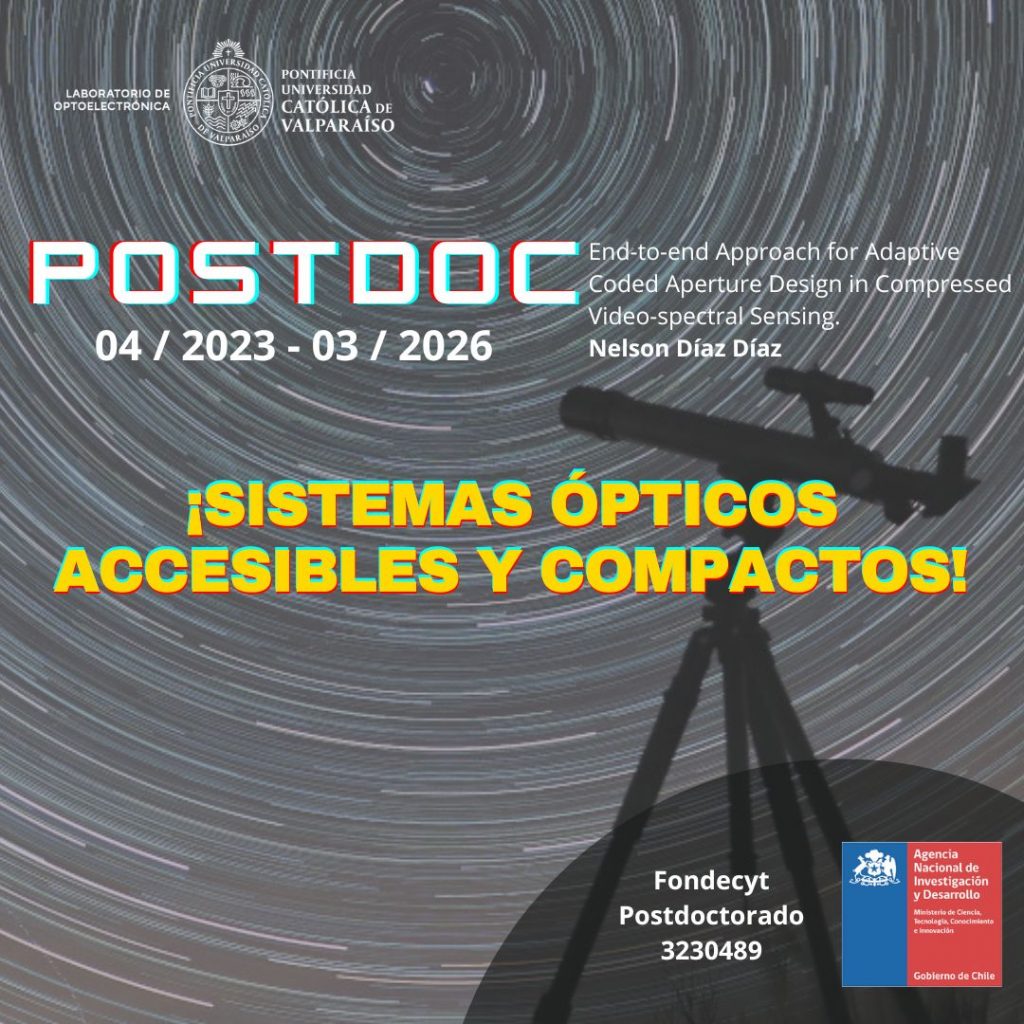The project was awarded by an Optolab postdoc researcher who is looking to generate new optic systems got provided US $100K in funding by the Chilean Agencia Nacional de Investigación y Desarrollo (ANID).
The Dr. in Engineer with a mention in electronics, Nelson Diaz, from the Universidad Industrial of Santander in Bucaramanga, Colombia, was awarded the project Fondecyt de Postdoctorado 3230489 titled “End-to-end Approach for Adaptive Coded Aperture Design in Compressed Video-spectral Sensing”, wining a funding of USD $100K.
This project that is going to create new optical systems, has Dr. Díaz as the principal researcher and Dr. Esteban Vera as the sponsoring researcher and they are both affiliates to the PUCV’s School of Electrical Engineering.
Dr. Diaz explains that “Chile has one of the best skies for astronomical observation, nonetheless this privileged position has been affected by the increase of objects in the low orbit of the Earth, which mostly correspond to satellite internet networks. To mitigate this situation, new monitoring systems are required”.
“This new systems that we will develop with the Fondecyt project will allow, among other uses, the observation of the low orbit of Earth, making sure to have clear skies in astronomic observation”, the researcher mentions.
For the next 3 years, Dr. Diaz is looking to consolidate his experience in the computational optics area through this project, in this area the sensors are developed based on compressed sampling which capture signals projections, particularly, spectral video.
How would it work?
As an example of its application, the camera could be situated in a airborne platform as a CubeSat, for example, the device would send the captured projections to a station located on Earth and then, using computational algorithms, it would be possible to rebuild the spectral video.
The algorithms based on deep learning will allow to get spectral videos using a faster, cheapest, compact and accessible sensors, being pioneers in the simplification of this process. Because the traditional systems that are used to this day, capture all the information and require huge storage and transmission systems.

